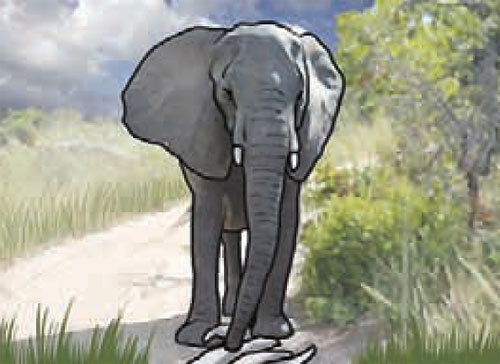Mourning of elephants
Mourning of elephants
Posted November. 14, 2018 07:25,
Updated November. 14, 2018 07:25

An existence in sadness particularly reacts sensitively to the sadness of another existence. And, so was English poet Christopher Reid, who won the Costa Book Awards with his collection of poems called "A Scattering" in 2009 even when poems were not popular. "A Scattering," which is the title of the poetry book and also the title piece, depicts the appearance of a sad poet who is gazing into the sadness of another existence.
Another existence here refers to elephants. The elephants in his poem are heartrending because the mourning of the elephants overlaps the mourning of the poet. As his first line, “I expect you’ve seen the footage,” shows, it is easy for us to find an image of a mourning elephant on YouTube.
Elephants find the bones of their own kind on a road and stops. It is the bones of an elephant they once knew –nothing left but bones with its flesh eaten away. The elephants fall into silence over the bones. Then, one of the elephants start to touch the bones. It hooks up the bones with its trunk, shakes them left and right, and carefully touches them with its back feet. Such images seem solemn and sad. Maybe it is evidence that mourning is not an exclusive feeling of humans. The poet believes that elephants' "ancient ritual," where elephants touch and scatter bones, is a way of mourning. Although sadness is not in proportion with the size of one’s body, the great size of the elephant seems to be telling us the size of their sadness - the "great size of grief."
The poet looks back on himself, engulfed in desperate sadness after losing his wife whom he loved by looking at the behavior of elephants who treat the bones of their own kind. He wants to be like an elephant. Like elephants who mourn over its kind by touching and scattering the bones in quietness, the poet wanted to remember the person he loved by placing “sad thoughts in new, hopeful arrangements" since death is not the end but a beginning of memories.






